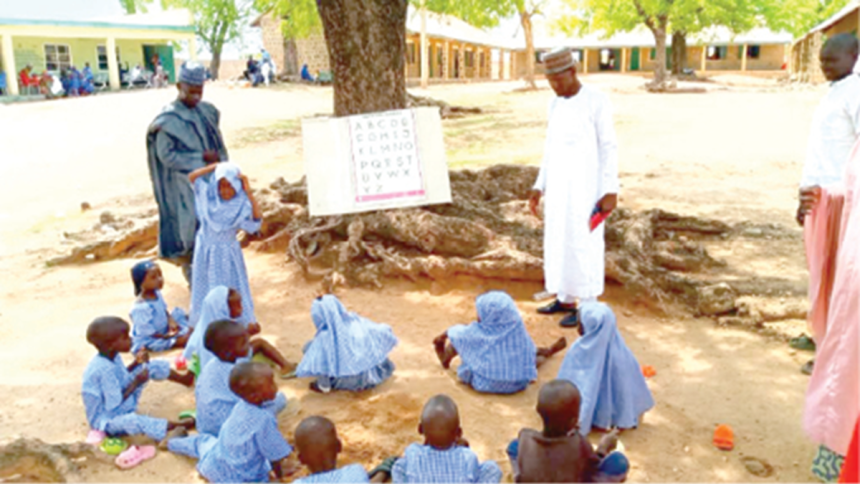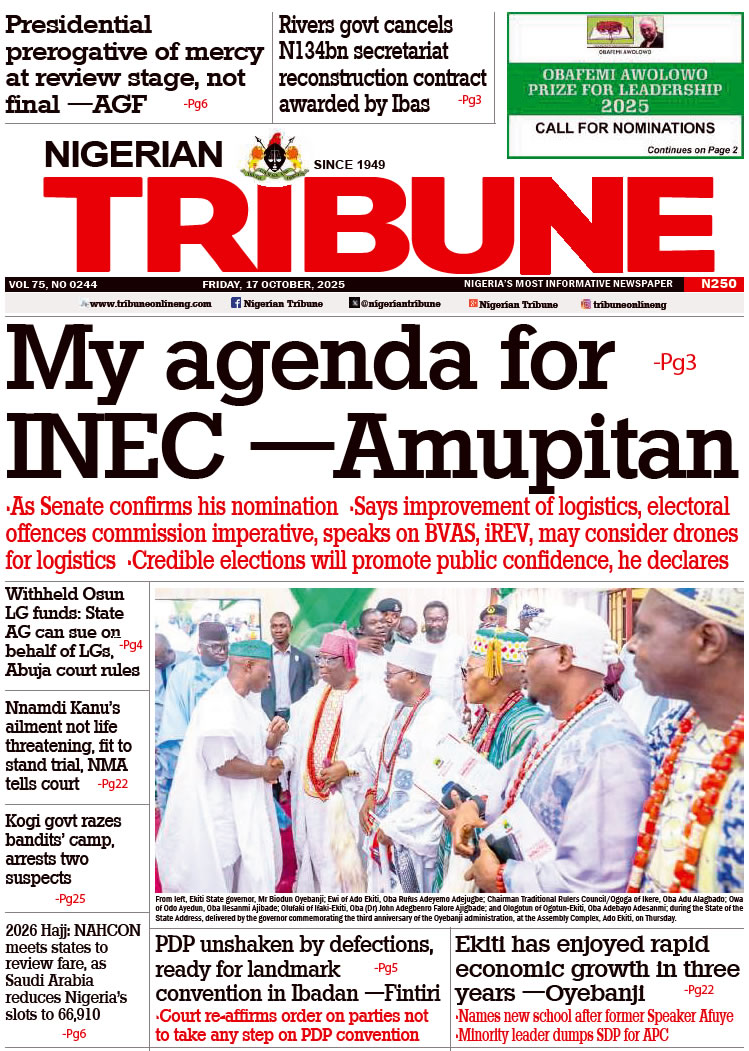Every morning, 10-year-old Bura Ali walks briskly to Dala Lawanti Primary School in Maiduguri. His tiny feet stir up dust as he moves through his neighborhood, his school bag slung over his shoulder. He is chasing a dream—he wants to become an engineer.
“Before, we sat on the floor. The classroom had no roof,” he recalls, eyes wide with memory. “Now we have chairs, a blackboard, even a computer room. I feel I can really learn something now.”
In war-affected communities like Mafoni, stories like Bura’s are becoming more common. Yabawa Mustapha, a student at Government Day Girls Secondary School, smiles as she points to her new classroom block.
“We used to share desks, and it was always hot and dark. Now the school is clean, bright, and safe. I feel proud to be a student.”
Teachers, too, are rediscovering a sense of purpose. Mamman Abdullahi, who teaches at Kulogumna Primary School, describes the shift as “historic.”
“Before, we had overcrowded classrooms, no staff rooms and little motivation,” he said. “Now, with new buildings, furniture and better conditions, we’re seeing a change in both teaching and learning.”
Across Borno State, the hum of education is rising again—through chalk on new blackboards, through the clicking of computer keyboards in ICT labs, and through songs of school children who now have safe spaces to learn.
This quiet transformation, however, did not happen by chance. It is the result of a comprehensive strategy by the Borno State Government to rebuild its education sector, driven by a firm belief in education as a tool for post-conflict recovery.
ALSO READ FROM NIGERIAN TRIBUNE: LIST: PDP, APC, LP bigwigs currently in ADC coalition against Tinubu
Speaking to Nigerian Tribune in Maiduguri, Governor Babagana Umara Zulum said: “Every classroom we build, every teacher we train, and every child we enroll is a direct blow to the ideology of hate that tore our state apart. We are not just building infrastructure—we are building peace.”
He added “These schools are part of a healing process. We want to ensure that no child in Borno grows up without the opportunity to learn and become something greater than what this crisis has tried to reduce them to.”
According to Commissioner for Education, Science and Technology, Engr. Lawan Abba Wakilbe, the scale of the effort is unprecedented. “We have reduced the number of out-of-school children in Borno from over 2 million to about 700,000. This is not just about numbers—it’s about giving our children a future and rebuilding the soul of our communities,” he said.
In Mafoni alone, three major school complexes have been completed: 36-classroom blocks at Mafoni Day Senior Secondary and Mafoni Primary/Junior Secondary Schools, and a 40-classroom block at Government Day Girls Secondary School. Each facility is equipped with ICT centres, modern toilets, staff offices, and solar power.
In Kumshe, Lamisula, Kulogumna, and Shehu Garbai, new classroom blocks now serve displaced and underserved children. In Jere LGA, the perimeter-fenced Maimusari Primary and Junior Secondary Schools offer students a safe, modern learning environment.
“These schools are no longer just buildings,” said Bukar Bulama, a community elder in Mafoni. “They are centres of transformation. They give our children structure, purpose, and a future.”
To support teacher motivation and ensure quality, the state introduced new wage structures, built staff quarters in Konduga, and distributed over 400 units of plastic desks, 12 sets of teachers’ furniture, and sports kits. School monitoring vehicles were also deployed across the state for routine inspections.
“We now have what we need to teach effectively,” said Tijjani Sanda, a teacher in Gajiram. “It might seem like small things—furniture, toilets, electricity—but it’s these things that build an environment where learning can happen.”
Beyond buildings and equipment, the government has made human capital investment a priority. Over ₦9.6 billion has been committed to scholarships—both local and international.
“We are investing in the next generation of leaders, engineers, doctors, and entrepreneurs—people who will drive Borno’s recovery and diversification,” said Wakilbe.
Already, ₦1.15 billion has supported 27,292 students in universities, polytechnics, and the Nigerian Law School, while an additional ₦672.6 million in special scholarships has gone to 2,002 vulnerable students, including CJTF orphans.
“I would never have left Maiduguri, let alone Nigeria, without the scholarship,” said Aisha Shettima, now studying biomedical sciences in Hungary. “The day I got the award letter, I knew my life was about to change.”
In a focused drive for STEM development, ₦4.56 billion was awarded to 298 Borno State indigenes studying STEM disciplines abroad, and ₦4.58 billion was given to 524 postgraduate students within and outside Nigeria.
“These scholarships are not just charity—they are strategic investments,” said Governor Zulum. “We are training a new generation to rebuild Borno with laptops, not weapons.”
Tertiary institutions are not left behind. The Nigerian Army University in Biu received new residential blocks comprising 12 flats, while the Muhammadu Buhari Academy Mega Boarding School saw improvements in its hostels, dining hall, and solar infrastructure.
From the sun-scorched streets of Maiduguri to the highlands of Biu, the sounds of learning—once silenced by violence—are returning. And for children like Bura Ali, those sounds are more than lessons. They are songs of hope.
“Education is our foundation,” said Wakilbe. “And in Borno, we’re using it to write a new story—one of resilience, recovery, and renewal.”
WATCH TOP VIDEOS FROM NIGERIAN TRIBUNE TV
- Relationship Hangout: Public vs Private Proposals – Which Truly Wins in Love?
- “No” Is a Complete Sentence: Why You Should Stop Feeling Guilty
- Relationship Hangout: Friendship Talk 2025 – How to Be a Good Friend & Big Questions on Friendship
- Police Overpower Armed Robbers in Ibadan After Fierce Struggle






